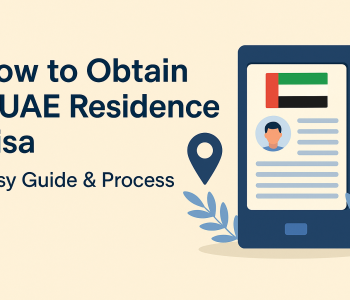 PRO Services
PRO Services
Learn how to create a compliant AML policy for…

How to Create an Effective AML Policy for Your Company in Dubai
In today’s increasingly regulated business environment, companies operating in Dubai must take proactive steps to combat money laundering and financial crimes. An effective AML policy in Dubai not only ensures legal compliance but also enhances your company’s credibility with regulators, partners, and clients.
If you’re establishing or running a business in the UAE, developing a strong anti-money laundering framework is no longer optional—it’s a necessity. This blog will guide you step-by-step on how to create a compliant and effective AML policy tailored to your business.
What is an AML Policy?
An AML (Anti-Money Laundering) policy is a set of procedures, rules, and controls designed to prevent criminals from disguising illegally obtained funds as legitimate income. In the UAE, businesses in regulated sectors are required to implement AML measures in accordance with Federal Decree-Law No. 20 of 2018, and the regulations set forth by the UAE Central Bank and Financial Intelligence Unit (FIU).
Why is AML Compliance in UAE Crucial?
AML compliance UAE is enforced strictly due to the country’s global position as a major financial and business hub. Non-compliance can result in:
- Heavy fines
- Business license suspension or cancellation
- Reputational damage
- Legal action
Industries particularly under the AML scope include:
- Real estate
- Financial services
- Gold and precious metal trading
- Legal and accounting firms
- Virtual asset service providers (VASPs)
Step-by-Step Guide: Creating an Effective AML Policy in Dubai
1. Conduct a Risk Assessment
Before writing your AML policy, evaluate the risks your business may face in terms of:
- Type of customers
- Nature of services
- Geographic locations
- Transaction sizes and volumes
A risk-based approach allows you to allocate resources effectively and design suitable control measures.
2. Appoint a Compliance Officer
Every company operating under AML regulations in Dubai must appoint a Compliance Officer or Money Laundering Reporting Officer (MLRO). Their responsibilities include:
- Monitoring suspicious activity
- Filing reports to the UAE Financial Intelligence Unit (goAML)
- Ensuring ongoing training and policy updates
3. Customer Due Diligence (CDD)
Your AML policy must detail how your company will verify the identity of customers. This includes:
- Verifying personal or corporate documents
- Understanding the nature and purpose of the business relationship
- Performing enhanced due diligence for high-risk clients or transactions
4. Establish Internal Controls
Build procedures and protocols for:
- Screening clients against sanctions lists
- Monitoring transactions for red flags
- Escalating and reporting suspicious activities
- Maintaining records for 5 years as per UAE AML law
5. Create a Training Program
Regular AML training ensures that your staff understand:
- How to identify suspicious activities
- How to report internally
- The consequences of non-compliance
Your policy should outline training frequency, topics, and attendance tracking.
6. Implement Ongoing Monitoring
A robust anti-money laundering framework requires ongoing transaction monitoring systems to:
- Detect unusual transaction patterns
- Flag anomalies for investigation
- Ensure compliance with changing regulations
7. Reporting Suspicious Transactions
If you detect unusual or suspicious behavior, you must report it through the goAML platform, managed by the UAE FIU. Your policy must describe:
- Who is responsible for reporting
- Timeframes for filing
- Supporting documentation
8. Review and Update the AML Policy
An effective AML policy must be reviewed regularly to reflect:
- Regulatory changes
- New types of risks
- Changes in your business operations
This ensures continued AML compliance in the UAE and readiness for audits or inspections.
Sample AML Policy Structure for Dubai-Based Companies
Here’s a simplified outline you can follow:
- Introduction & Policy Statement
- Risk Assessment Methodology
- Customer Due Diligence (CDD & EDD)
- Suspicious Activity Monitoring & Reporting
- Role of Compliance Officer
- Internal Controls & Record-Keeping
- Employee Training Program
- Policy Review and Updates
Consequences of Non-Compliance with the UAE AML Compliance Program
Failure to comply with the UAE AML Compliance Program can lead to severe consequences for businesses across various sectors. The UAE has strengthened its anti-money laundering regulations to align with international standards, and enforcement agencies are increasingly vigilant about identifying and penalizing non-compliant entities.
Here are some of the major risks and penalties associated with non-compliance:
1. Financial Penalties
The UAE authorities, including the Ministry of Economy and the UAE Central Bank, impose hefty fines on businesses that fail to implement an effective AML framework. These fines can range from AED 50,000 to AED 5 million, depending on the severity of the violation.
2. Suspension or Cancellation of Business License
Companies that fail to meet AML obligations may face temporary suspension or permanent revocation of their trade license. This can bring business operations to a halt and damage your company’s market position.
3. Reputational Damage
Being flagged for non-compliance under the UAE AML Compliance Program can tarnish your business’s reputation. This can result in loss of client trust, partnerships, and long-term profitability.
4. Criminal Charges and Legal Consequences
In serious cases, directors, partners, or responsible officers may face criminal prosecution, leading to imprisonment and further financial liabilities. The law holds individuals accountable—not just the entity.
5. Blacklisting and Restricted Access to Banking Services
Non-compliant businesses may be blacklisted and struggle to access banking facilities, loans, or even open new accounts. Banks in the UAE follow strict AML due diligence protocols and may refuse to work with flagged companies.
6. Increased Regulatory Scrutiny
Once flagged, your business may be subjected to frequent audits, inspections, and additional reporting requirements, which can strain internal resources and affect operations.
Ignoring the requirements of a UAE AML Compliance Program can lead to costly legal, financial, and reputational setbacks. It is vital for companies operating in regulated sectors to implement a comprehensive AML policy, appoint a compliance officer, and ensure ongoing staff training. Taking a proactive approach not only ensures compliance but also builds long-term trust and sustainability for your business in the UAE.
Final Thoughts
Creating an effective AML policy in Dubai is not just a regulatory requirement—it’s a strategic move to protect your business from legal issues and reputational damage. Whether you’re a financial services provider or a small real estate agency, developing a tailored anti-money laundering framework is essential for staying compliant and credible in the UAE market.
Need help creating or reviewing your AML policy? Our compliance experts can help you navigate the complexities of AML compliance UAE and build a solid foundation for your business.








